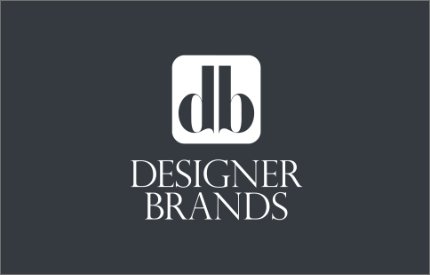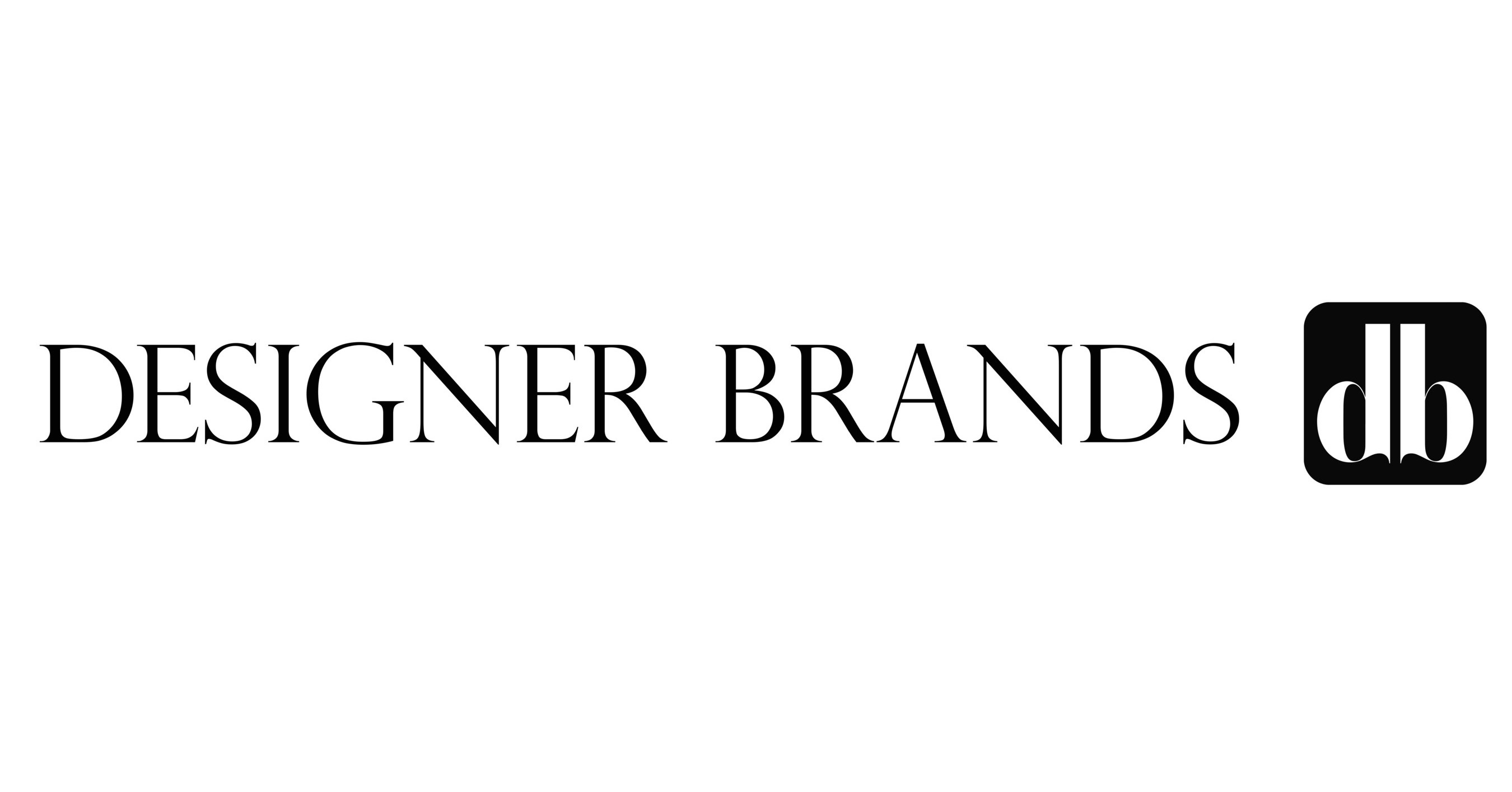Designer Brands Inc. Q1 Earnings: A Mixed Bag with Optimistic Undertones

- Designer Brands Inc. reported a Q1 EPS of $0.01317, missing the expected $0.15, but slightly exceeding revenue forecasts with $746.6 million.
- The company's stock experienced a downturn following the earnings announcement, attributed to a decrease in adjusted profits.
- Despite the EPS shortfall, DBI maintains its full-year guidance, reflecting confidence in its strategic direction and future growth prospects.
Designer Brands Inc. (NYSE:DBI), a prominent player in the footwear and accessories retail sector, recently disclosed its first-quarter earnings for 2024, revealing mixed results that have stirred the market. On June 4, 2024, DBI reported earnings per share (EPS) of $0.01317, falling short of the anticipated $0.15. Despite this, the company managed to slightly exceed revenue expectations, posting $746.6 million against an estimate of $741.63 million. This performance has led to a significant reaction from investors and analysts alike as they assess the implications for DBI's market position and future prospects.
The earnings report was closely followed by a notable decline in DBI's stock price, as highlighted by The Motley Fool. This downturn was attributed to the sharp decrease in adjusted profits for the quarter. However, DBI has chosen to maintain its full-year guidance, projecting a modest increase in top-line growth. This decision reflects the company's confidence in its business strategy and its ability to navigate the challenges ahead. The financial community is now keenly observing how these developments will influence DBI's standing in the competitive retail landscape.
During the earnings conference call, key figures such as CEO Doug Howe and CFO Jared Poff discussed the quarter's results and fielded questions from participants, including analysts from prestigious firms like UBS. This interaction provided valuable insights into the company's financial health and strategic direction. The call, detailed by Seeking Alpha, was an opportunity for DBI to address concerns and outline its plans for recovery and growth in the coming months.
Despite the disappointing EPS, DBI's financial metrics offer a mixed picture. With a price-to-earnings (P/E) ratio of approximately 27.44, investors seem willing to pay a premium for DBI's earnings, suggesting optimism about the company's future profitability. The price-to-sales (P/S) ratio of about 0.17, on the other hand, indicates that the market values each dollar of DBI's sales relatively low, which could point to potential undervaluation. These ratios, along with the company's debt-to-equity (D/E) ratio of approximately 1.78, provide a comprehensive view of DBI's financial position and risk profile.
In conclusion, Designer Brands Inc.'s latest earnings report has elicited a mixed response from the market. While the company's revenue slightly exceeded expectations, the shortfall in EPS and the subsequent stock price drop reflect the challenges DBI faces. Nonetheless, the company's decision to maintain its full-year guidance, coupled with its financial ratios, suggests a cautious optimism about its ability to navigate the competitive retail environment and improve its financial performance in the future.
| Symbol | Price | %chg |
|---|---|---|
| 9983.T | 46740 | -0.9 |
| TRENT.NS | 5410 | 0.04 |
| TRENT.BO | 5392.05 | -0.26 |
| BABY.JK | 304 | 1.32 |

Designer Brands Inc. (NYSE: DBI) Faces Financial Challenges Amid Retail Sector Turmoil
- Earnings per share (EPS) of -$0.26, missing the estimated EPS of $0.01, indicating a significant deviation from the previous year's $0.08 EPS.
- Revenue for the quarter was approximately $686.9 million, falling short of the estimated $736 million, marking a 6.67% miss from the Zacks Consensus Estimate.
- DBI's financial struggles are highlighted by a negative price-to-earnings (P/E) ratio of -13.85 and a high debt-to-equity ratio of 4.62, indicating significant reliance on debt financing.
Designer Brands Inc. (NYSE:DBI) is a prominent player in the global footwear and accessories market. The company designs, produces, and retails a wide range of products. However, DBI is currently navigating a challenging financial landscape. On June 10, 2025, DBI reported an earnings per share (EPS) of -$0.26, missing the estimated EPS of $0.01. This marks a significant deviation from the $0.08 EPS reported in the same quarter last year.
The company's revenue for the quarter was approximately $686.9 million, falling short of the estimated $736 million. This represents a 6.67% miss from the Zacks Consensus Estimate and a decrease from the $746.6 million reported in the same quarter the previous year. Over the past four quarters, DBI has consistently failed to meet revenue expectations, highlighting ongoing challenges in the retail sector.
DBI's financial struggles are further underscored by its negative price-to-earnings (P/E) ratio of -13.85, indicating current losses. The company's price-to-sales ratio is 0.05, suggesting that its stock is undervalued relative to sales. Despite these challenges, DBI is focusing on enhancing value in its retail channels and controlling costs to mitigate the impact of tariffs and preserve margins.
CEO Doug Howe attributes the company's difficulties to an unpredictable macroeconomic environment and declining consumer sentiment. In response, DBI aims to achieve cost savings of $20 million to $30 million throughout 2025. The company has also temporarily withdrawn its 2025 guidance due to ongoing instability and pressure on consumer discretionary spending.
DBI's financial metrics reveal a high debt-to-equity ratio of 4.62, indicating significant reliance on debt financing. However, the current ratio of 1.24 suggests that the company has a reasonable level of liquidity to cover short-term liabilities. As DBI navigates these challenges, it remains focused on strategic initiatives to improve its financial performance.

Designer Brands Plunges 20% After Disappointing Q1 and Pulled Guidance
Designer Brands (NYSE:DBI) shares nosedived over 20% intra-day today after the company delivered a weak first-quarter performance and withdrew its full-year forecast due to growing economic and geopolitical headwinds.
The company reported an adjusted loss of $0.26 per share for the quarter, sharply missing Wall Street’s expected loss of $0.08. Revenue came in at $686.9 million, down 8% year-over-year and falling well short of the $736 million analysts had projected. Comparable sales dropped 7.8%, signaling weakening demand.
In a notable shift, the company scrapped its prior full-year 2025 guidance, citing significant macroeconomic uncertainty, particularly around global trade policies. In response, Designer Brands announced plans to implement $20 million to $30 million in cost reductions throughout the fiscal year.

Designer Brands Inc. (DBI) Faces Financial Challenges in Recent Quarter
- Earnings per share (EPS) of $0.236 missed the estimated target, alongside revenue falling short of expectations.
- DBI's stock price declined following the announcement, highlighting the market's reaction to financial underperformance.
- The company's financial metrics, including a high debt-to-equity (D/E) ratio of approximately 3.59, indicate significant challenges ahead.
Designer Brands Inc. (NYSE:DBI), a prominent player in the retail apparel and shoes industry, faced a challenging financial quarter as reported on Wednesday, September 11, 2024. The company, known for owning popular brands like DSW and Keds, reported earnings per share (EPS) of $0.236, missing the estimated target of $0.56. Additionally, its revenue for the period was $771.9 million, falling short of the expected $816.14 million. This performance indicates a significant downturn from the company's previous year's achievements and forecasts, raising concerns among investors and market analysts.
Following the announcement of these disappointing financial results, DBI experienced a notable decline in its stock price. This reaction from the market underscores the importance of meeting or exceeding analyst expectations, as these figures often serve as benchmarks for the company's financial health and future prospects. The downward revision of the company's financial guidance for the year further exacerbated investor concerns, signaling potential challenges ahead for the retailer. This development was widely covered by financial news outlets, including The Motley Fool and Barrons, highlighting the impact of the earnings miss on the company's market valuation.
The reported earnings surprise of -48.21% for the quarter, alongside a revenue shortfall of 5.72% compared to the Zacks Consensus Estimate, marks a continuation of the company's struggle to meet expectations. This trend is alarming, considering that over the last four quarters, Designer Brands has only surpassed consensus revenue estimates once. Such a pattern of underperformance could indicate deeper issues within the company or the sector it operates in, potentially affecting its long-term growth and profitability.
Financial metrics further illustrate the challenges faced by Designer Brands. With a price-to-earnings (P/E) ratio of approximately -59.36, the company is currently not profitable based on its trailing twelve months (TTM) earnings. The price-to-sales (P/S) ratio, at about 0.097, and the enterprise value to sales (EV/Sales) ratio of approximately 0.501, suggest that the stock is trading at a low value relative to its sales, which could be seen as an opportunity or a sign of undervaluation due to the company's recent performance issues. Additionally, the high debt-to-equity (D/E) ratio of approximately 3.59 indicates a significant level of debt relative to equity, which could pose risks to the company's financial stability.
In summary, Designer Brands Inc. faces a critical period as it navigates through financial underperformance and market skepticism. The company's ability to address these challenges, improve its financial metrics, and restore investor confidence will be crucial for its recovery and future growth within the competitive retail apparel and shoes industry.

Designer Brands Inc. (DBI) Faces Financial Challenges in Recent Quarter
- Earnings per share (EPS) of $0.236 missed the estimated target, alongside revenue falling short of expectations.
- DBI's stock price declined following the announcement, highlighting the market's reaction to financial underperformance.
- The company's financial metrics, including a high debt-to-equity (D/E) ratio of approximately 3.59, indicate significant challenges ahead.
Designer Brands Inc. (NYSE:DBI), a prominent player in the retail apparel and shoes industry, faced a challenging financial quarter as reported on Wednesday, September 11, 2024. The company, known for owning popular brands like DSW and Keds, reported earnings per share (EPS) of $0.236, missing the estimated target of $0.56. Additionally, its revenue for the period was $771.9 million, falling short of the expected $816.14 million. This performance indicates a significant downturn from the company's previous year's achievements and forecasts, raising concerns among investors and market analysts.
Following the announcement of these disappointing financial results, DBI experienced a notable decline in its stock price. This reaction from the market underscores the importance of meeting or exceeding analyst expectations, as these figures often serve as benchmarks for the company's financial health and future prospects. The downward revision of the company's financial guidance for the year further exacerbated investor concerns, signaling potential challenges ahead for the retailer. This development was widely covered by financial news outlets, including The Motley Fool and Barrons, highlighting the impact of the earnings miss on the company's market valuation.
The reported earnings surprise of -48.21% for the quarter, alongside a revenue shortfall of 5.72% compared to the Zacks Consensus Estimate, marks a continuation of the company's struggle to meet expectations. This trend is alarming, considering that over the last four quarters, Designer Brands has only surpassed consensus revenue estimates once. Such a pattern of underperformance could indicate deeper issues within the company or the sector it operates in, potentially affecting its long-term growth and profitability.
Financial metrics further illustrate the challenges faced by Designer Brands. With a price-to-earnings (P/E) ratio of approximately -59.36, the company is currently not profitable based on its trailing twelve months (TTM) earnings. The price-to-sales (P/S) ratio, at about 0.097, and the enterprise value to sales (EV/Sales) ratio of approximately 0.501, suggest that the stock is trading at a low value relative to its sales, which could be seen as an opportunity or a sign of undervaluation due to the company's recent performance issues. Additionally, the high debt-to-equity (D/E) ratio of approximately 3.59 indicates a significant level of debt relative to equity, which could pose risks to the company's financial stability.
In summary, Designer Brands Inc. faces a critical period as it navigates through financial underperformance and market skepticism. The company's ability to address these challenges, improve its financial metrics, and restore investor confidence will be crucial for its recovery and future growth within the competitive retail apparel and shoes industry.

Designer Brands Lost more than 10% Despite Q1 Beat
Designer Brands Inc. (NYSE:DBI) share prices dropped more than 10% today, despite the Q1 beat. The company posted Q1 EPS of $0.12, better than the analyst estimate of a loss of $0.18 per share. Revenue stands at $703.2 million, again higher than the Street estimate of $651 million.
The report implied that the company has likely completely recovered from the impact of the pandemic, however, the stock saw a sharp decline today following the results, which according to Jon Quast from Fool.com, makes no sense.
During the conference call, Roger Rawlins, the Chief Executive Officer of the company said that the strong start of fiscal 2021 was driven by green shoots in the business areas previously affected by COVID-19, synergies from the company’s vertical capabilities becoming active, which allowed the company to take advantage of positive trends faster.

Designer Brands Lost more than 10% Despite Q1 Beat
Designer Brands Inc. (NYSE:DBI) share prices dropped more than 10% today, despite the Q1 beat. The company posted Q1 EPS of $0.12, better than the analyst estimate of a loss of $0.18 per share. Revenue stands at $703.2 million, again higher than the Street estimate of $651 million.
The report implied that the company has likely completely recovered from the impact of the pandemic, however, the stock saw a sharp decline today following the results, which according to Jon Quast from Fool.com, makes no sense.
During the conference call, Roger Rawlins, the Chief Executive Officer of the company said that the strong start of fiscal 2021 was driven by green shoots in the business areas previously affected by COVID-19, synergies from the company’s vertical capabilities becoming active, which allowed the company to take advantage of positive trends faster.







